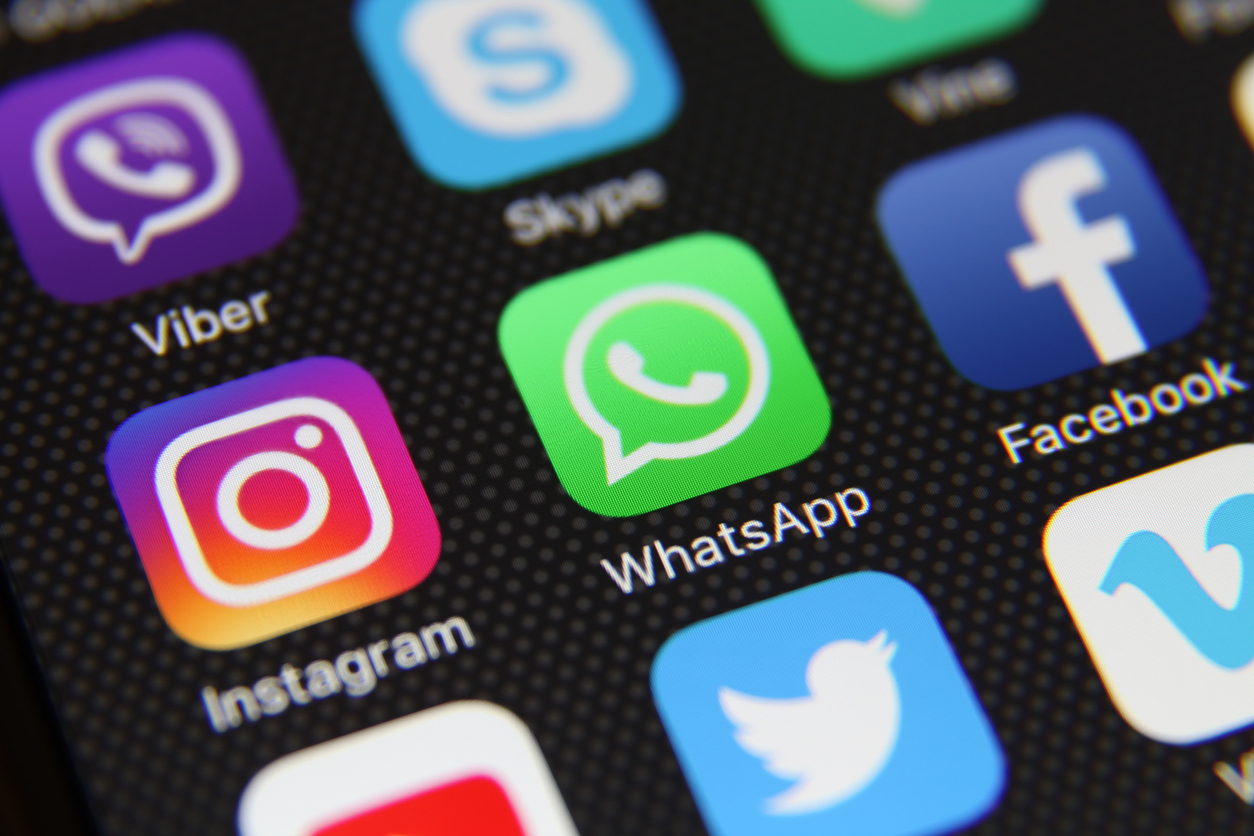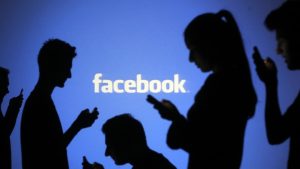
Big Tech regulation: One step back not to prevent future steps forward

A federal court in the US has thrown out an anti-trust lawsuit filed against Facebook by the Federal Trade Commission and 46 of the 50 states that constitute the United States of America. The case sought to undo Facebook’s acquisition of Instagram in 2012 and WhatsApp in 2014. The judge said that the prosecution failed to make its case that Facebook was a monopoly and that it has taken far too long to question these corporate acquisitions, which could have been challenged when they occurred. The court has given the prosecution 30 days to come up with a stronger case, however.
This might seem like a big setback to the ongoing moves in the US and the European Union (EU) to use anti-trust laws to break up or discipline the tech majors. Facebook’s share price rose, pushing up its market capitalisation, and the company into the elite ranks of Apple, Microsoft, Saudi Aramco, Amazon and Alphabet (Google’s parent), entities valued by the market at more than a trillion dollars each, more than $2 trillion in the case of Apple and Microsoft.
However, this setback is not going to end the war on Big Tech, which has drawn the ire of both liberals and conservatives in the US and a host of regulators around the world. The European Union has imposed multiple fines worth billions of dollars on Google for alleged monopolistic behaviour in 1) search results, 2) advertising and 3) apps used on phones that run the Android operating system. Google has paid the fines but proceeded to appeal against the penalty. A fine of a few billion dollars would break the back of most companies but make Google merely flinch – its latest reported annual revenue stood at $181.69 billion.
US legislators engaged in drafting laws to break up Big Tech reacted to the news of Facebook’s victory in the anti-trust suit by emphasising the need to update the anti-trust laws meant to break up the monopolies of the late 19th and early 20th century America. As the judge observed, these laws are based on the prices consumers have to pay and how monopolies affect such prices. In the case of several tech offerings, whether search, email or social media, the service is totally free, scuppering any price-related impact on the consumer. Clearly, the laws do need to be updated on this count. However, monopoly does not seem to be the most appropriate charge against Facebook.
Facebook argued, convincingly, that other platforms like TikTok have come up, to disprove the claim that it controlled the environment to thwart the rise of competition. Twitter, YouTube, LinkedIn and several dating apps that have, during the pandemic, morphed to provide platonic connections show the potential of technology to constantly produce new forums of social engagement.
The trouble with Facebook is, to my mind, threefold: one, it fragments the public discourse, creating different echo chambers in which its occupants never encounter a fact or an opinion that challenges their prejudices, undermining one of the pre-requisites of democracy; two, it monetises the audience appeal of the content it displays, starving the creators of the content of their legitimate revenue; three, it leads impressionable minds into a diminished world of social interactions, with distorted measures of peer esteem. Volumes can be written on each one of these flaws.
Also read: Facebook m-cap hits $1 trillion after US judge throws out antitrust cases
Not that echo chambers waited for Facebook to create them. Leaders of polities, religious cults, academic institutions and companies have, for centuries, found their congenial habitat in discrete, tiny worlds in which no one questioned their wisdom, no one contradicted their commands. The need continues, desperately, for little boys who exclaim, ‘look, the emperor has no clothes on!’
If not money, what do these tech companies take from their consumers, take from all of us? Our data. How much and in what manner they monetise the data show up in their business model and revenues. This realisation evokes reflexive resentment among most people, leading to calls for untrammelled privacy. However, there is good reason to leave our instinctive dislike of anyone taking anything that belongs to us and look at Big Tech’s use of our data through the lens of rationality.

Data is not something that diminishes when used: the data that Google takes from us can also be found and used by Facebook and Twitter. When you photograph the Taj Mahal, that does not diminish another person’s ability to photograph the monument. Some goods are non-rivalrous, in the jargon of economists. At a depersonalised and aggregated level, most people can agree, use of data by tech companies can help society.
Whether I default on my loan is something between my bank and me. However, when a credit information bureau collects data on most borrowers that leads to better lending decisions, fewer bank collapses and greater public good.
The mobility data gleaned by Google from the Global Positioning System feeds of Android phones makes for a sound leading indicator of economic activity — even in India, where you might imagine that mobility data misleads, as people assemble in their voluntary millions for a religious, rather than economic, purpose or are herded, in chartered buses and trucks, to political rallies that warm the hearts of political leaders surveying the masses waiting to receive their pearls of wisdom. Even such mobility generates economic activity: people employ transport to reach the point of religious congregation, they buy food and accommodation and spend on divinity services, from the proceeds of which places of worship are refurbished and employ service providers. Mobilisation of attendees at political rallies makes extensive use of transport services, involves the purchase of thousands of food packets and redistribution of income from the rich donors of political parties to the poor who attend the rallies in return of a monetary reward.
The data gathered by Big Tech allows it to develop artificial intelligence which in turn can be of immense benefit to society. The big profits generated by Big Tech allows it to undertake moonshot projects that rational economic calculus would shun. Google Health seeks to combine these two attributes — advanced artificial intelligence and the expensive search for unlikely solutions — to produce healthcare miracles.
Also read: Facebook says it can locate users who opt out of tracking
The point is not that data sovereignty is a meaningless concept or that Big Tech does not have an obligation to make sure the data it harvests brings no harm to the data subject. These have to be ensured through appropriate laws and regulation.
China today is at the cutting edge of artificial intelligence. A big advantage it has over other nations is the unrestricted access to masses of data on the world’s biggest population its tech companies have. China is a rising superpower. It is vital to create conditions in which its capacity to hurt others is restrained. One of those conditions is for India to develop competing, if not superior, capabilities in artificial intelligence. For that, Indian companies need both ambition and access to data. Data regulation should, therefore, strike the right balance between individuals’ data sovereignty and the availability of masses of data for training artificial intelligence.
Big Tech is no monolith. Facebook is fighting Apple, as the latest operating system for iPhones and other i-gadgets allows the gadget’s owner to block any installed app tracking the owner’s online behaviour. This could hurt Facebook’s advertising model. Microsoft was willing to play along when countries like Australia sought to force Google to pay Australian media for the news it displays and Google threatened retaliation in the form of disabling Google search in the region. Microsoft is keen to popularise its own search engine, Bing.

Amazon is trying to increase its share of the advertising pie — its thrust on Alexa and voice search is to get people to search for products on Amazon and raise advertising as a major revenue source. This would eat into the revenues of Google and Facebook. YouTube and other streaming services from Google compete with Amazon’s streaming service. And all the Big Tech companies face competition from new kids who keep appearing on the block, such as TikTok.
Facebook’s attempt to create a blockchain-based stablecoin stands stymied for the time being but could prove immensely useful as a method of settling cross-border payments without using the dollar. That would deflate American ability to weaponise the dollar via sanctions.
Amazon is fighting off a concerted move in the US to unionise its workforce. At the same time, by paying $15 an hour as the minimum wage for its warehouse workers, and employing large numbers of unskilled workers in a growing number of locations, it is forcing other employers to raise their wages, too.
Is Big Tech amenable to regulation, or will they use their money and muscle to evade compliance? Microsoft’s example is edifying. It is the one tech major in the super league that is not in any regulator’s crosshairs. That is now. Microsoft had been forced by anti-trust action to stop bundling its Internet Explorer web browser with its personal computer operating system. After that, it has been on good behaviour. There is no reason to believe other tech companies would behave differently. Today, Google is being asked to stop using its control of the Android operating system from privileging its own apps, and, increasingly, to pay content creators for the content it aggregates and displays.
Also read: This list of world’s most popular websites has some surprises
The short point is that Big Tech is neither a danger in itself nor an internally united force that can fight off change. On occasion, they can be sources of immense public good. They need to be regulated, and the challenge is to fashion sensible regulation.
One part of it is to deem social media as publishers subject to the same obligations as mainstream media. Another is to end the fragmenting of the public discourse into monochrome bubbles and create, once again, a shared universe of information and opinion, and to prevent content aggregators from leaching away the content creators’ revenue potential.
(The Federal seeks to present views and opinions from all sides of the spectrum. The information, ideas or opinions in the articles are of the author and do not necessarily reflect the views of The Federal)


